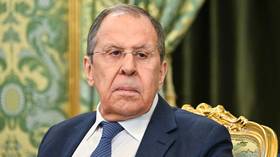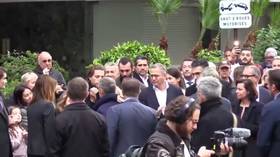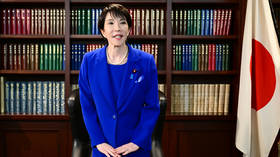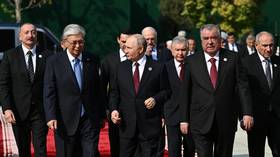Apple closes store in China for first time
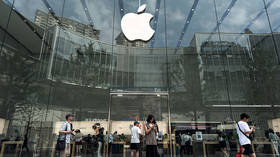
US tech giant Apple has announced it will close one of its stores in China for the first time since entering the country more than 15 years ago. The pullback comes as sales in the company’s second-largest market slide, local rivals gain ground, and trade tensions with the US continue to rise.
Apple said on Monday it would shut its Parkland Mall store in the Zhongshan District of the northeastern Chinese city of Dalian on August 9.
“We have made the decision to close our store there,” Apple said in a statement cited by several media outlets.
Apple had 57 stores in China last year, making up over 10% of its global retail network. However, it has been facing mounting challenges, with sales in the country falling for six straight quarters. Annual revenue dropped to $66 billion last year – nearly 10% below its 2022 peak.
Chinese brands such as Huawei, Xiaomi, and Vivo have steadily chipped away at Apple’s share of the world’s biggest smartphone market, the South China Morning Post wrote. According to tech research firm Canalys, Apple ranked fifth in China this spring with a 15% share – down from nearly 18% a year earlier.
While the Dalian closure was officially linked to mall restructuring, analysts point to a deeper strategic shift. China, where most iPhones are assembled by suppliers like Foxconn, has been hit with the toughest US tariffs yet. In response, Apple has begun steadily shifting production to India and Vietnam to limit risk and cost pressures.
Washington and Beijing have long been locked in a trade standoff. Tensions flared in April when US President Donald Trump imposed 145% duties on certain Chinese imports as part of a broader campaign targeting over 90 trading partners. Beijing hit back with 125% tariffs on US goods and export curbs. Trump later declared a truce after the series of tit-for-tat tariff hikes rattled global markets.
This week, the two countries held a three-day summit in Stockholm with the aim of extending the tariff truce and easing economic tensions.



